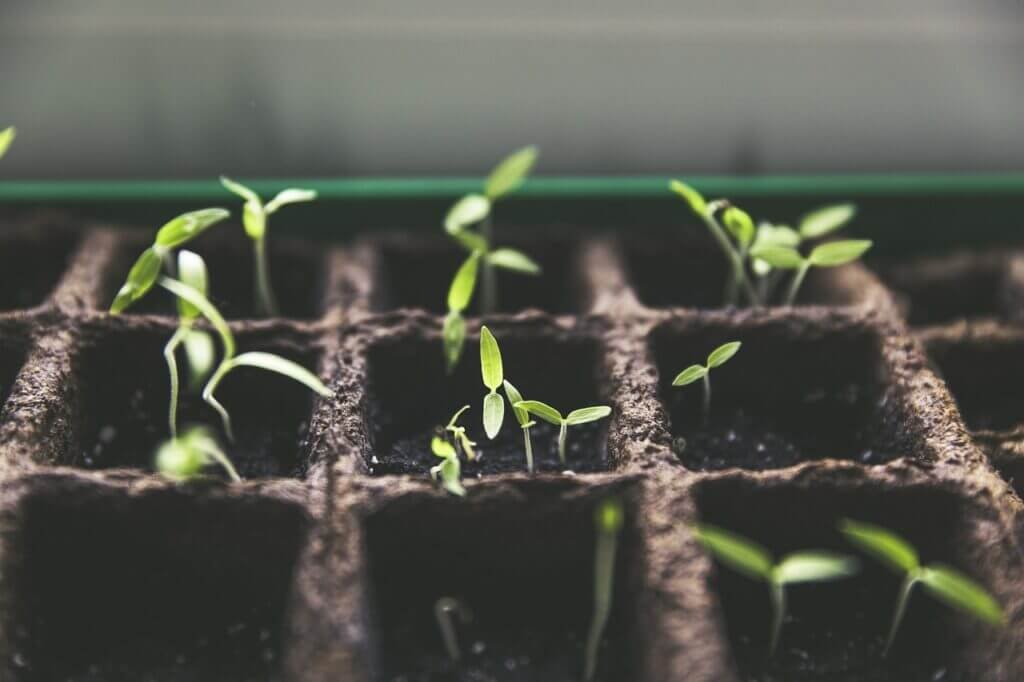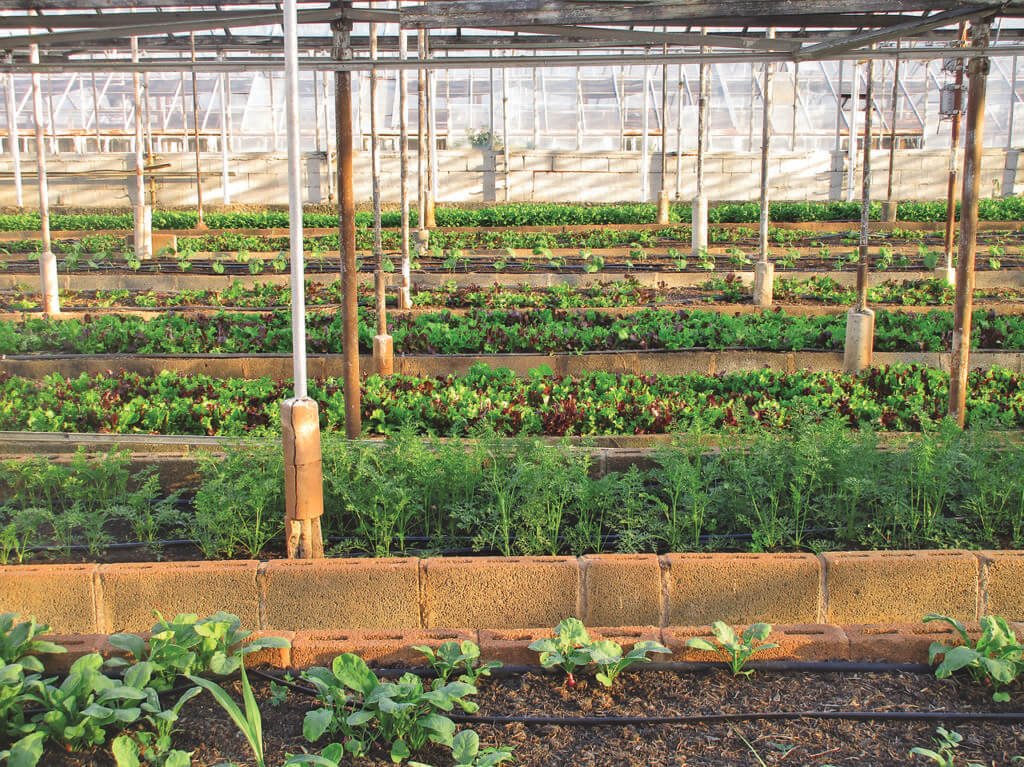Living in the midst of a bustling city can sometimes make it feel like finding a patch of greenery is impossible. However, if you’ve ever wondered whether it’s possible to cultivate a garden on a balcony or rooftop, the answer is a resounding yes! With a little bit of creativity and some green thumbs, you can transform these small urban spaces into thriving gardens bursting with life and color. So, if you’re ready to bring nature closer to home, let’s explore the possibilities of creating your own beautiful oasis in the concrete jungle. Yes, you absolutely can! Balcony and rooftop gardening offers a plethora of benefits and opportunities for city dwellers. In this comprehensive article, we will explore the various advantages, considerations, techniques, and creative ideas for balcony and rooftop gardening. We will also delve into the maintenance and care required for these gardens, as well as community and collaborative gardening projects. Additionally, we will discuss how to optimize limited space for maximum yield and provide resources to help you get started with your own balcony or rooftop garden.

Benefits of Balcony and Rooftop Gardening
Improved air quality
One of the key benefits of balcony and rooftop gardening is the improvement in air quality. Plants are natural air purifiers, capable of removing harmful pollutants from the atmosphere. By introducing greenery into your outdoor space, you can help filter out pollutants such as carbon dioxide and volatile organic compounds, resulting in cleaner and fresher air around you.
Increased access to fresh produce
Another significant advantage of balcony and rooftop gardening is the increased access to fresh produce. Growing your own fruits, vegetables, and herbs allows you to have a ready supply of organic, flavorful, and nutritious produce right at your fingertips. Additionally, urban gardening promotes sustainability by reducing the need for transportation and packaging associated with store-bought produce.
Enhanced aesthetics
Adding plants and greenery to your balcony or rooftop can significantly enhance the aesthetics of your space. Vibrant flowers, luscious herbs, and lush green foliage can create a visually appealing and inviting atmosphere. Whether you prefer a quaint herb garden or a vibrant flower display, balcony and rooftop gardening allows you to personalize and beautify your outdoor space.
Reduced energy consumption
Balcony and rooftop gardens can also contribute to reduced energy consumption in urban areas. By providing an additional layer of insulation, plants can help regulate the temperature of your home or apartment. In the summer, foliage provides shade and helps to cool down your living space, reducing the need for air conditioning. During the colder months, the plants act as a buffer, insulating against heat loss.
Considerations for Balcony and Rooftop Gardening
Space availability
Before diving into balcony and rooftop gardening, it is crucial to assess the availability of space. Evaluate the size and layout of your balcony or rooftop to determine how much gardening you can realistically accommodate. Consider factors such as obstructions, furniture, and walking paths to ensure that your gardening efforts do not impede daily activities.
Weight-bearing capacity
Another vital consideration is the weight-bearing capacity of your balcony or rooftop. Ensure that the structure can support the additional weight of containers, plants, soil, and water. Consult with a professional if you are unsure about the load-bearing capabilities of your outdoor space. Safety should always be a top priority.
Sunlight exposure
Plants require sunlight to survive and thrive. Assess the amount of sunlight your balcony or rooftop receives throughout the day. Take note of any buildings, trees, or other structures that may cast shadows and obstruct the sun’s rays. Ideally, you want to choose plants that are suited to the lighting conditions of your outdoor space.
Watering and drainage
Proper watering and drainage are essential for the health of your plants. Evaluate the ease of access to water sources and consider how you will provide water to your garden. Additionally, ensure that your balcony or rooftop has adequate drainage to prevent water accumulation and potential damage to the structure.
Wind and weather conditions
Urban environments often experience higher wind speeds due to the lack of natural windbreaks. Consider the exposure and intensity of winds on your balcony or rooftop. Wind can dry out plants and cause damage, so it is important to choose resilient plant varieties and provide adequate shelter or protection if necessary.

Choosing the Right Plants for Balcony and Rooftop Gardening
Herbs
Growing herbs on your balcony or rooftop is a popular choice for many gardeners. Herbs are relatively low maintenance, compact, and can be grown in smaller containers. Some popular herb choices for balcony and rooftop gardening include basil, mint, parsley, rosemary, and thyme. Not only do herbs provide a fresh and aromatic addition to your meals, but they can also attract beneficial pollinators to your garden.
Vegetables
Vegetables can thrive in containers and provide a bountiful harvest for your kitchen. Choose compact varieties that are suitable for container gardening, such as cherry tomatoes, salad greens, peppers, and radishes. Consider the space requirements and growth habits of each vegetable to ensure proper growth and development.
Flowers
Adding vibrant flowers to your balcony or rooftop garden can create a stunning display and attract pollinators. Choose flowers that are suitable for container gardening, such as petunias, marigolds, geraniums, and pansies. Consider the color scheme and height of the flowers to create a visually appealing arrangement.
Fruits
While some fruits may require larger containers and more space, there are several dwarf and compact fruit tree varieties that can thrive in balcony and rooftop gardens. Consider planting strawberries, blueberries, or dwarf apple or citrus trees for a taste of nature’s sweetness right outside your door.
Succulents
Succulents are a popular choice for balcony and rooftop gardens due to their low water requirements and unique aesthetic appeal. These drought-tolerant plants come in a wide variety of colors and textures, adding interest and beauty to your outdoor space. Some popular succulent choices include echeverias, sedums, and aeoniums.
Container Gardening Techniques
Selecting the appropriate containers
When engaging in balcony and rooftop gardening, selecting the right containers is crucial. Choose containers that are suitable for your space and plant preferences. Options include traditional clay or ceramic pots, lightweight plastic containers, hanging baskets, or even repurposed items such as wooden crates or tin cans. Ensure that the containers have drainage holes to prevent waterlogging.
Choosing the right soil
Choosing the right soil is vital for the success of your balcony and rooftop garden. Opt for a well-draining potting mix that is rich in organic matter. Avoid using garden soil, as it may become compacted and hinder the growth of your plants. Consider adding compost or fertilizer to provide essential nutrients for your plants.
Providing adequate drainage
Adequate drainage is essential for preventing waterlogged soil and root rot. Ensure that your containers have drainage holes at the bottom. Place a saucer or tray underneath to catch excess water, but be mindful of emptying it regularly to avoid stagnant water and mosquito breeding.
Managing plant growth and spacing
As your plants grow, it is important to manage their growth and spacing. Regularly prune and trim your plants to prevent overcrowding and ensure ample airflow. Consider the growth habits of each plant and provide sufficient space between them to avoid competition for resources.

Vertical Gardening on Balconies and Rooftops
Utilizing trellises and hanging baskets
Vertical gardening is a smart technique for maximizing your balcony or rooftop space. Utilize trellises or vertical supports to grow climbing plants such as beans, peas, cucumbers, or ivy. Hanging baskets are also a great way to utilize vertical space and add cascading plants such as trailing petunias or ferns.
Using wall-mounted planters
Another option for vertical gardening is to use wall-mounted planters. These planters allow you to grow plants vertically, creating a living wall effect. Choose plants that have a trailing or cascading growth habit to achieve a stunning visual display.
Creating modular vertical gardens
Modular vertical gardens are an innovative way to maximize your space while adding a unique design element to your balcony or rooftop. These systems allow you to create a customizable arrangement of plants in individual modules. You can mix and match different plant varieties and create a living work of art.
Creative Ideas for Balcony and Rooftop Gardens
Creating a mini herb garden
Designing a mini herb garden is a fantastic way to combine functionality and aesthetics. Choose a variety of herbs that you commonly use in your cooking and plant them in colorful pots or small containers. Arrange the herbs in an organized manner or create a whimsical layout, adding a touch of charm to your balcony or rooftop.
Designing a vibrant flower display
If you have a penchant for colorful blooms, consider designing a vibrant flower display. Choose a mix of annuals and perennials to achieve a continuous bloom throughout the growing season. Experiment with different color combinations and heights for a visually striking arrangement.
Building a vertical vegetable garden
Dedicate a portion of your balcony or rooftop to a vertical vegetable garden. Utilize trellises, vertical supports, or modular systems to grow climbing vegetables such as beans, peas, or tomatoes. Not only will you enjoy a bountiful harvest, but you will also save valuable space for other gardening endeavors.
Establishing a fruit tree orchard
While it may require more space and careful planning, establishing a fruit tree orchard on your balcony or rooftop can be incredibly rewarding. Choose dwarf or compact fruit tree varieties that are suitable for container gardening. Enjoy the beauty of blossoms in the spring and harvest fresh fruits in the summer and fall.
Developing a succulent wall
If you prefer a low-maintenance and visually striking display, consider developing a succulent wall. Choose a variety of succulent plants with different colors and textures and create a living tapestry on a vertical surface. Succulent walls can become an eye-catching focal point in your balcony or rooftop garden.
Maintaining and Caring for Balcony and Rooftop Gardens
Regular watering and moisture control
Ensure that your balcony and rooftop gardens receive regular watering to keep the plants healthy and hydrated. Check the moisture levels of the soil regularly and adjust your watering schedule accordingly. Be mindful of the weather conditions, as intense heat and wind may necessitate more frequent watering.
Fertilizing and providing nutrients
To promote healthy growth and abundant yields, it is important to fertilize your plants regularly. Choose a balanced organic fertilizer and follow the instructions for application. Additionally, consider incorporating compost or other organic matter into the soil to provide essential nutrients to your plants.
Pruning and trimming
Regular pruning and trimming are essential for maintaining the shape and health of your plants. Remove any dead or damaged foliage, as well as spent flowers or fruits. Prune for desired shape and size, and pinch back plants to encourage bushier growth.
Pest control and prevention
Pests can pose a threat to your balcony and rooftop garden. Monitor your plants regularly for signs of pests and take appropriate action to control infestations. Consider using organic pest control methods such as companion planting, insecticidal soaps, or neem oil to protect your plants.
Winterizing and protection from frost
In colder climates, it is essential to prepare your balcony and rooftop garden for winter. Move sensitive plants indoors or provide insulation with frost blankets or covers. Mulch the soil to protect the plant roots from freezing temperatures. Additionally, minimize watering during the dormant season to prevent root rot.
Community and Collaborative Gardening Projects
Joining a local gardening club
One way to connect with fellow gardeners and learn from experienced individuals is by joining a local gardening club. These clubs often organize workshops, garden tours, and community events focused on gardening. You can share your knowledge, exchange resources, and gain valuable insights from like-minded individuals.
Participating in rooftop farm initiatives
Some cities have rooftop farm initiatives that aim to utilize unused spaces for agricultural purposes. These initiatives offer opportunities to engage in collaborative gardening projects, learn about sustainable farming practices, and contribute to local food production. Consider participating in such initiatives to make a meaningful impact in your community.
Sharing resources and knowledge with neighbors
Balcony and rooftop gardening can foster a sense of community and collaboration. Connect with your neighbors who are also interested in gardening and share resources and knowledge. Consider organizing plant swaps or community gardening projects to collectively enhance the green spaces in your vicinity.
Optimizing Limited Space for Maximum Yield
Utilizing vertical and hanging planters
When space is limited, vertical and hanging planters can be a game-changer. Utilize all available vertical surfaces, including walls, railings, and pergolas, to grow plants vertically. Hanging planters can be used to maximize space and add a touch of greenery to your balcony or rooftop.
Employing companion planting techniques
Companion planting refers to the practice of planting different species together to benefit each other. By strategically selecting companion plants, you can optimize space utilization, repel pests, improve soil health, and increase overall yield. Research companion planting techniques and experiment with complementary plant combinations for your balcony or rooftop garden.
Implementing intensive gardening methods
Intensive gardening methods maximize productivity by utilizing space efficiently. Techniques such as square foot gardening, intercropping, and succession planting allow you to grow more plants in a limited area. Focus on efficient use of soil, water, and nutrients to achieve a high yield in your balcony or rooftop garden.
Finding Balcony and Rooftop Gardening Resources
Online garden forums and communities
Online garden forums and communities provide a wealth of information and resources for balcony and rooftop gardening. Join these platforms to connect with fellow gardeners, seek advice, and share your gardening experiences. Engage in discussions, ask questions, and stay updated with the latest trends and techniques in urban gardening.
Local nurseries and gardening centers
Local nurseries and gardening centers are valuable resources for balcony and rooftop gardening. Consult with knowledgeable staff who can provide guidance on plant selection, soil requirements, and container gardening techniques. Take advantage of their expertise and explore the wide range of plants and gardening supplies available.
Books and publications on urban gardening
Several books and publications focus specifically on urban gardening techniques and best practices. These resources can offer in-depth knowledge and inspiration for your balcony and rooftop garden. Look for titles that cover topics such as container gardening, vertical gardening, and urban permaculture.
City-sponsored gardening workshops
Many cities offer gardening workshops and educational programs to promote urban agriculture. These workshops may cover a wide range of topics, from basic gardening principles to specialized techniques for balcony and rooftop gardens. Check with your local government or community organizations to find out about upcoming workshops and events.
In conclusion, balcony and rooftop gardening provide a multitude of benefits, from improved air quality and increased access to fresh produce to enhanced aesthetics and reduced energy consumption. By considering factors such as space availability, weight-bearing capacity, sunlight exposure, watering and drainage, and wind and weather conditions, you can create a thriving garden in your urban space. Choose the right plants, employ container gardening techniques, and explore vertical gardening options to maximize your space. Get creative with ideas such as mini herb gardens, vibrant flower displays, vertical vegetable gardens, fruit tree orchards, and succulent walls. Maintain and care for your balcony and rooftop garden through regular watering, fertilizing, pruning, pest control, and winterizing. Engage in community and collaborative gardening projects, optimize limited space for maximum yield, and utilize resources such as online forums, local nurseries, books, and city-sponsored workshops. With these comprehensive guidelines and tips, you can embark on a rewarding journey of balcony and rooftop gardening, transforming your outdoor space into a green oasis in the city. So go ahead, grab a trowel, and start growing your own little piece of paradise!


